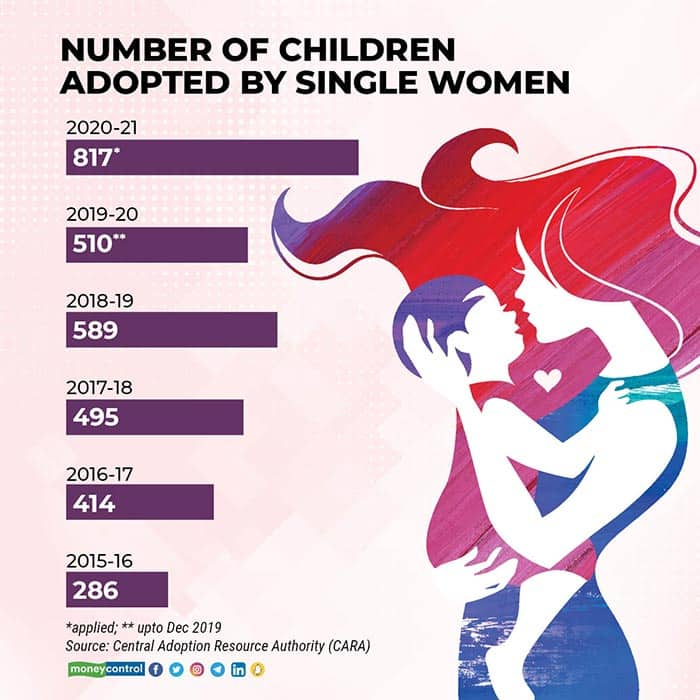



Single women in India constitute an expanding group and many of them have adopted children. Up to 13 million out of 72 million single women are mothers.
Unlike the US, India doesn’t yet offer tax credits to encourage adoption. But let us understand whether the regular tax benefits available on expenses made for a child are eligible for an adopted child as well.
 Tuition fee
Tuition fee
You can claim a deduction of the tuition fees paid for the education of two children in a school located in India under Section 80C. This benefit is available for single parents or unmarried guardians, provided they are contributing towards the educational expenses. However, the maximum deduction for an individual under Section 80C is Rs 1.5 lakh.
“Deduction for tuition fees is available to an individual in respect of any two children of the individual. The tax laws do not go by whether the parents are married or not,” says Homi Mistry, partner at Deloitte Haskins & Sells.
Remember that deductions under this section cannot be claimed on educational expenses for any individual other than her child, so the child should be legally adopted.
Educational loan
Payment of interest on an educational loan too is permitted as an exemption under Section 80 C. “The definition of child as per the tax laws includes an adopted child. Hence, the benefits are available in respect of a legally adopted child,” says Mistry.
Interest paid on a loan availed for completion of senior secondary education can be claimed for tax benefits. The loan can be for the individual, spouse, or children. Exemption claim can be made up to eight years or up to payment of interest. The beauty of this benefit is that there is no limit applicable on the education loan exemption.
Hostel allowance
A parent is permitted to claim hostel allowance up to Rs 300 per month for a child who is studying away from home. “Children’s hostel allowance is available in respect of the biological child, and the same is also available in respect of an adopted child,” says Suresh Surana, founder of RSM India Tax Consulting.
But this benefit can be claimed for a maximum of two children.
Leave travel allowance
Under income tax benefits, leave travel allowance (LTA) helps a parent claim the travelling cost of vacation once in four years. “For the purpose of claiming leave travel concession under Section 10(5) of the Income-tax Act, the benefit is restricted to ‘family’ as defined in the particular section,” says Surana.
This list includes a person’s stepchild or an adopted child and, hence, a single woman can claim the LTA benefits for an adopted child.
Gifts
Gifts up to Rs 50,000 in the form of cash, vehicle, art or real-estate can be received from anyone and everyone. Above this limit they aren’t taxed only if they are received from select dependants and relatives. “The tax exemption with respect to gift is restricted to ‘relatives’ as defined in Section 56(2)(x) of the Income-tax Act,” says Surana.
The list of relatives mentioned in the Act includes spouse, mother, father, brother and sister.
So while a child can accept a gift from his adopted parents above Rs 50,000 and be exempted from tax, any gift received from the biological parents would be taxed as their rights on the child have been given up.
Similarly, the stepbrother, stepsister and others wouldn’t be considered as specified relatives and hence gifts from them could be subject to tax. It is worth noting here that even though gifts and inheritance money and assets aren’t taxed in the hands of the specific relatives, any money earned out of the gift (for instance interest on fixed deposit of gift money) and asset (example rent on gifted property) is later taxed.
Discover the latest Business News, Sensex, and Nifty updates. Obtain Personal Finance insights, tax queries, and expert opinions on Moneycontrol or download the Moneycontrol App to stay updated!
Find the best of Al News in one place, specially curated for you every weekend.
Stay on top of the latest tech trends and biggest startup news.